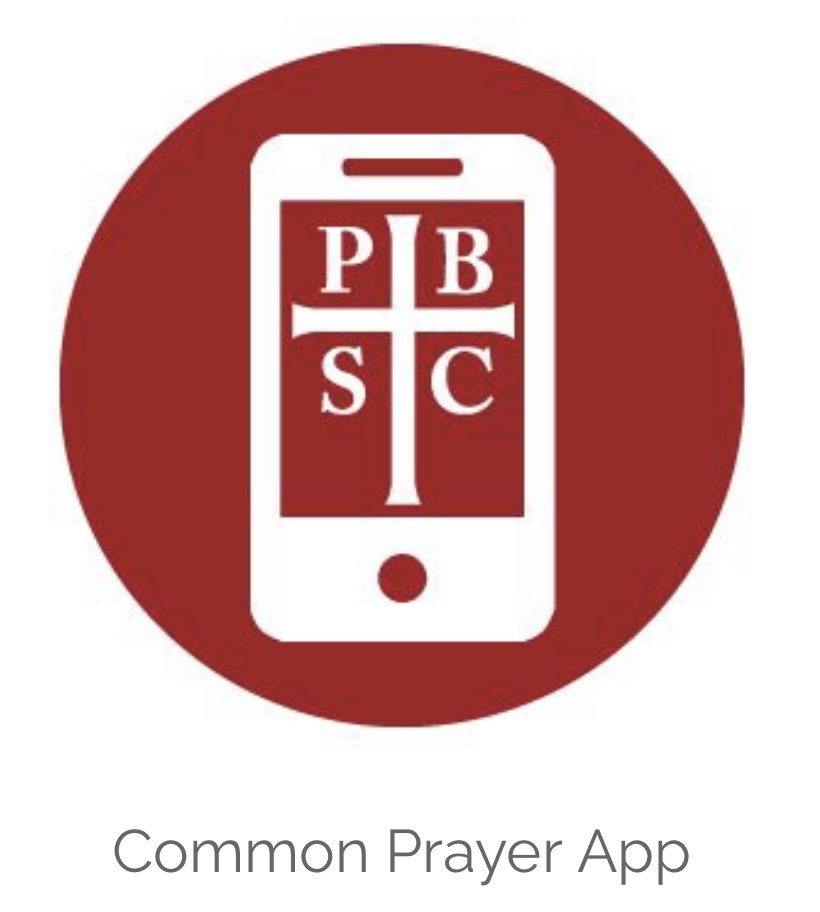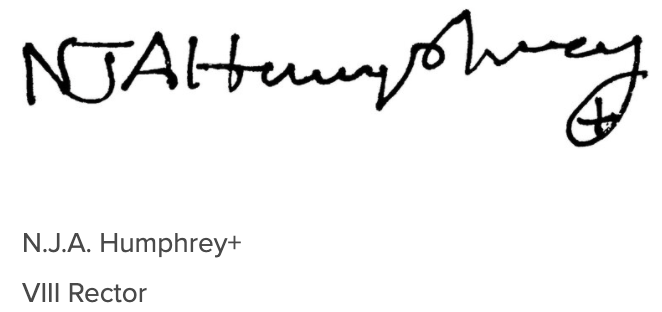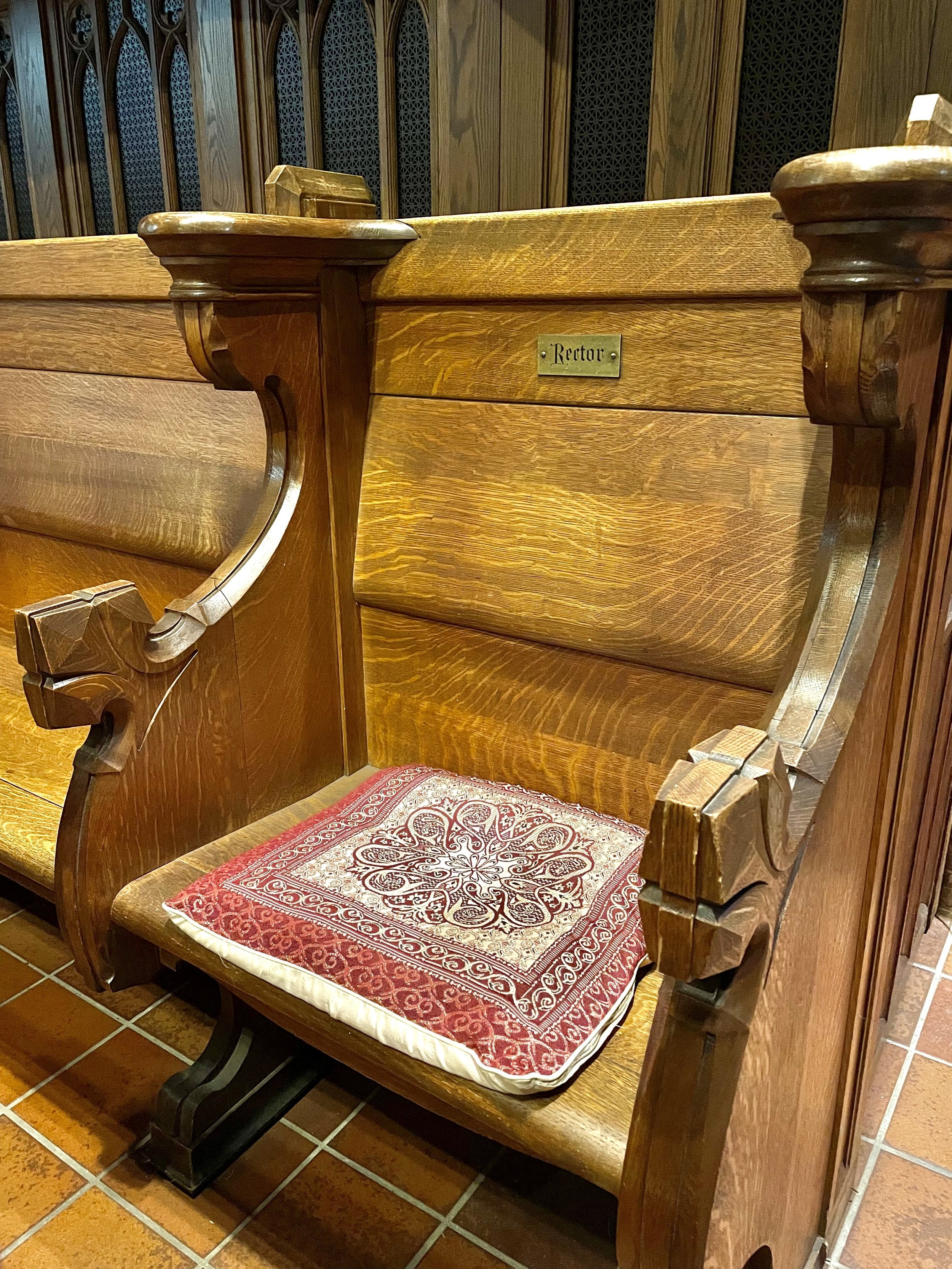Dear People, Neighbours, and Friends of St. Thomas’s,
As a newcomer to the liturgy of the Anglican Church of Canada, I do not have any academic grounding or seminary training in the peculiarities of the various Canadian usages enshrined in the 1962 Book of Common Prayer (BCP) or the 1985 Book of Alternative Services (BAS). Thankfully, I happen to be supervising a Wycliffe College seminarian, Daniel McCarley, who is also coming fresh to the Canadian liturgical scene, but who has the advantage of undertaking coursework in liturgics with Prof. Jesse Billett of Trinity College.
Last Tuesday, as Daniel and I prepared for Low Mass, he mentioned that Psalm 58 was not in the 1962 BCP. I was gobsmacked. And I must admit, I wondered whether Daniel might have misheard something in class, until he overcame my skepticism by showing me pages 400–401 in the BCP. Sure enough, there were Psalms 57 and 59, but Psalm 58 was nowhere to be found.
I was reminded of two other cut-and-paste jobs that are regarded derisively by liturgically sound Episcopalians in the United States: The Book of Common Prayer as published by the Unitarian King’s Chapel, Boston in 1785, which omitted all references to the Holy Trinity; and the Jefferson Bible of 1820, wherein the former third president of the United States excised the miracles of Jesus and most mentions of the supernatural.
In the case of the 1962 BCP psalter, the imprecatory psalms were omitted in whole or in part. (See BCP p. xlix for the specific citations.) On the one hand, it was shocking to me that the framers of the 1962 Canadian BCP should do such violence to the text when the framers of the much more radically revisionist 1979 American BCP didn’t dare attempt such a thing. (Usually, it’s the Americans, like me, who are unafraid of liturgical hubris.) On the other hand, it seemed entirely consistent with the rationalist tendency to exclude anything that offends one’s own preconceived notions of what is, and is not, credible.
Further research into this matter turned up an excellent article by the Rev’d Chris Dow of this diocese on the Canadian Prayer Book Society’s website, entitled Should They Be Wiped Out of the Book of the Living? Restoring the Omitted Portions of the Imprecatory Psalms, which was posted on July 13, 2021, just three days before my family and I moved to Canada. In it, he anticipates my own most withering critiques of this pernicious assault on the psalter, and reveals that, thankfully, one can now restore those omitted portions through a simple setting incorporated into the Common Prayer Canada app, which I myself use in praying the Daily Office. Sadly, this does not solve the problem for those of us who are stuck with the print version of “the psalter as it is appointed to be said or sung in churches” (cf. BCP p. 331), but it does give us one option for praying the entire psalter.
And why would we want to pray the whole psalter in the first place? When I was living with a group of Benedictine monks in upstate New York, Fr. Martin Boler, O.S.B., the community’s prior, said in a talk that the thing he most loved about the psalter was the fact that it expressed the full range of human emotions. The psalter gives us permission to bring before God our entire selves, including the ugly, seemingly unredeemable bits, the parts that we want to hide not just from others, but from ourselves, and lays them bare at the feet of the One from whom no secrets are hid.
It is a simple fact that human beings feel what we feel when we feel it, and the psalter is an unvarnished, unsanitized version that reflects all the feelings that human beings, in fact, feel. This fact does not mean that God approves of our desire for revenge, for instance, nor that the desire for revenge is morally justifiable. But it does mean that God is less shocked by our uglier emotions than we are, and in fact knows how to redeem them—if we are honest to God about them. It is this whitewashing of human experience that is insidious, as if nice Christians are incapable of unseemly thoughts, feelings, and desires, which simply isn’t true. God doesn’t want us to hide from ourselves or from God, but to offer ourselves, our souls and bodies to God, warts and all. The imprecatory psalms of the psalter help us do that, and with gusto.
The wider context for what sparked the movement to excise the imprecatory psalms was humanity’s revulsion in the wake of the Great War. And after two world wars, we finally began to take seriously “man’s inhumanity to man,” to use somewhat dated language. But in taking it seriously, the victors in the war also wanted to reassure themselves, I think, that they (we) could never be so inhumane. The Holocaust was terrible, but the firebombing of Dresden and the nuclear attacks on Hiroshima and Nagasaki put paid to those notions, at least as far as I’m concerned. And yet, we want to think of ourselves as basically good people. And in Canada, we want to think of ourselves as nice, polite people, too, living in a place and time where the imprecatory psalms are completely out of place and thus should be relegated to the distant past, and forgotten.
But we are not basically good people. Tell the families of residential school survivors that we are basically good people. Tell the mothers who lost sons in the Great War, and every war before or since. Sometimes, we deserve to have the imprecatory psalms prayed against us, and sometimes nothing can express our own anger, frustration, and sense of cosmic injustice better than these psalms.
As we approach Remembrance Sunday, with its beautiful poppy wreaths and moving hymns, let us recognize that the imprecatory psalms have a proper place even within our own prayer lives, because sometimes life is nasty, brutish, and short, and we have no one else to blame but ourselves. And sometimes life is nasty, brutish, and short, and we need to tell God about those who are oppressing us, and wonder why God doesn’t do something about it now that will satisfy our visceral desire for revenge.
But thanks be to God, who assures us, in the words of the Apostle, that grace still abounds, even in the aftermath of great wars and tragedies: “Who shall separate us from the love of Christ? Shall tribulation, or distress, or persecution, or famine, or nakedness, or peril, or sword? As it is written, ‘For thy sake we are killed all the day long; we are accounted as sheep for the slaughter.’ Nay, in all these things we are more than conquerors through him that loved us. For I am persuaded, that neither death, nor life, nor angels, nor principalities, nor powers, nor things present, nor things to come, nor height, nor depth, nor any other creature, shall be able to separate us from the love of God, which is in Christ Jesus our Lord.”
Even when we are at our worst, God’s love is there. Even when we are at our ugliest, the redemptive and reconciling grace of God is constantly at work, whether we want it or not. And as we become more honest with ourselves and others about who we are, and who we aren’t, we will, by grace, come to a deeper appreciation of whose we are, warts and all: We are God’s.
Yours in Christ’s service,
Daily Office Officiants & Participants
One of the things I cherish most about St. Thomas’s has been the opportunity to begin and end my day in corporate prayer. We’ve moved towards the recitation of Morning Prayer and Evening Prayer in the Quire, in part because there’s a stall with a brass plate that reads “Rector.” I’ve taken the liberty of putting a seat cushion in the stall (and, to be fair, I’ve put one in the stall opposite, assigned to the Associate, Preacher, or Daily Office Officiant, depending on the occasion), and I find that it’s a rather cozy place. The stalls are also conveniently socially distanced, so there’s no worry about violating any of the many rules and regulations we are endeavouring in good faith to follow.
As we approach the new liturgical year on Advent 1, the 28th of November, I encourage you to consider whether you might be able to join us on one or more days, at one or more services. They tend to take fifteen to twenty minutes, so I’ve come to think of them as “punctuation marks” in my day. (Sometimes Morning Prayer is a question mark, and sometimes it’s an exclamation point. Evening Prayer tends to be more of a semicolon than a period.) Or perhaps “bookends” would be more apt, though it’s perfectly permissible to attend one Office in a day if that’s what one’s schedule allows.
While we are always looking for lay people who would be willing to be trained to serve as officiants (complete with a cozy stall of one’s own), whether regularly or as substitutes, I particularly welcome any companion in prayer, whether that companion comes regularly or only occasionally. For “wherever two or three are gathered,” Christ is indeed in the midst of us. — Fr. Humphrey
Their sacrifice will not be forgotten. The First World War Memorial Baptistery on Remembrance Day. Thank you to Bob Kennedy, Lindsay Squire, and Ernie Chamberlain for making this lovely display possible.




